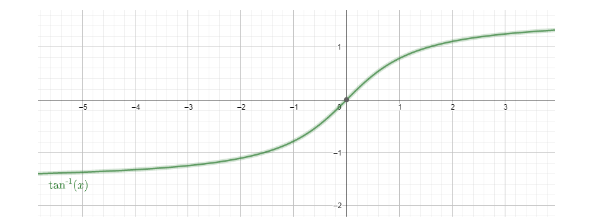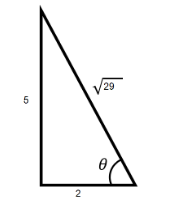Question
Question: How do you solve \( \tan x=2.5 \) ?...
How do you solve tanx=2.5 ?
Solution
Hint : We explain the function tan−1x . We express the inverse function of tan in the form of arctan(x)=tan−1x . We draw the graph of arctan(x) and the line x=2.5 to find the intersection point. We can also solve it as y=tanx=2.5 and find their intersection.
Complete step-by-step answer :
The given expression is the inverse function of trigonometric ratio tan. We need to find tan−1(2.5) .
The arcus function represents the angle which on ratio tan gives the value.
Each of the trigonometric functions is periodic in the real part of its argument, running through all its values twice in each interval of 2π .
The general solution for that value where tanα=x will be nπ+α,n∈Z .
But for tan−1x , we won’t find the general solution. We use the principal value. For ratio tan we have −2π≤tan−1x≤2π .
The graph of the function is

We now place the value of x=2.5 in the function of tan−1x .
Let the angle be θ for which tan−1(2.5)=θ . This gives tanθ=2.5 .
For this we take the line of x=2.5 and see the intersection of the line with the graph tan−1x .
Putting the value in the graph of tan−1x , we get θ=68.2 . (approx.)
We get the value of y coordinates as 68.2∘ .
So, the correct answer is “ 68.2∘ ”.
Note : We can also apply the trigonometric identity where tanθ=2.5=25 . We express it in a right-angle triangle whose height will be 5 and the base will be 2.
In that case the hypotenuse will be 52+22=29 .

Also, in the exact solution domain of −2π≤θ≤2π , the solution is θ=68.2 .
